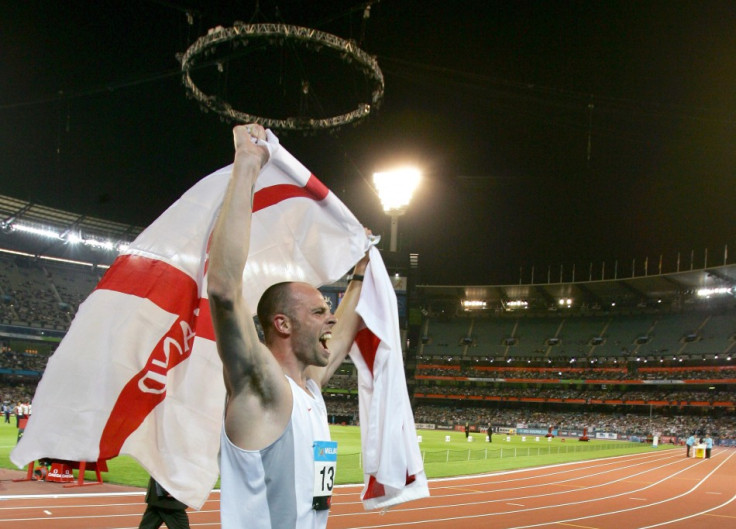London Olympics 2012: Dean Macey Demands Life Bans for Drug Cheats
Decathlete Dean Macey believes the British Olympic Association bylaw being overturned opens the door for more cheating
Former Commonwealth Decathlon Gold medalist Dean Macey has called for life bans to be handed down to drug cheats.
Macey's comments come after the Court of Arbitration for Sport ruled that the British Olympic Association bylaw preventing previously banned athletes from competing at the Olympics was unlawful, leaving the likes of sprinter Dwain Chambers and cyclist David Millar free to compete at London 2012.
While the 34-year-old agrees with the ruling by the CAS, he believes the World Anti-Doping agency, who won the appeal against the BOA's ban, should rule with an iron fist.
"I absolutely agree with the World Anti-Doping Agency and the court of arbitration for sport that every country needs to be playing from the same rule book," Macey wrote in his Guardian column. "My problem is that the book they are using is the wrong one.
"I believe that any athlete caught doping should be banned from competing for his country for the rest of his life.
"The Cas decision to overturn the British Olympic Association bylaw and allow drugs cheats to compete at the 2012 Olympics means that the deterrent against doping is weaker than it was. It has gone from being a punch in the face to a slap on the wrist."

A raft of British athletes will benefit from the ruling, with national record holder Carl Myerscough one of those set for a reprieve.
Athletes are likely to receive a two-year ban should they be found guilty of taking an illegal substance, but are free to return to regular competition after serving their punishment.
Macey says that because of the leniency of the punishment now without the added risk of missing the Olympics, athletes are more likely to take drugs with the reward outweighing the perils of being caught.
"In sport doping is the ultimate sin," Macey added.
"A two-year ban, which is what most dope cheats now get, is bugger all in the context of a 10- or 15-year career. I spent more time than that out injured.
"Two years is too small a price to pay for cheating a sport that has already suffered so much bad publicity, and for denying other athletes the right to compete on a level playing field.
"The threat of missing the Olympics was a strong deterrent, but the message that has been sent out by Wada and Cas this week is that they think doping doesn't merit a sentence that serious.
"Believe me, that is only going to mean that more athletes will be willing to take the risk of doping."
Chambers is the highest profile athlete to profit from the CAS decision, and is now likely to compete at London 2012 this summer, should he achieve the Olympic qualifying standard.
The case of the 34-year-old has been among the most well documented incidents involving a British athlete caught doping, but Macey believes now reinstated, Chambers will be accepted by the home crowd.
"I think the majority of British fans have accepted Dwain now. Certainly he gets a warm reception when he competes in this country," Macey said.
"But I think you'll find the majority of those same fans are still uneasy with the message the Cas decision has sent to drugs cheats.
"It also has to be said that while Dwain was sincere in his desire to reform himself, he did not have much choice. His hand was forced.
"British fans don't tolerate drugs cheats. So if you are from this country and you get caught cheating you either take it on the chin and try to change your life around, or you're cast out."
"And the truth is that his presence on the team is going to improve our chances of winning a medal, particularly in the 4x100m relay."
© Copyright IBTimes 2025. All rights reserved.





















